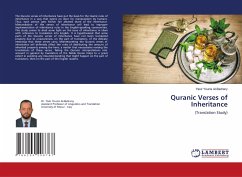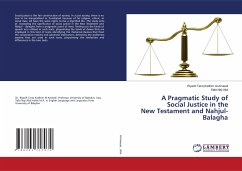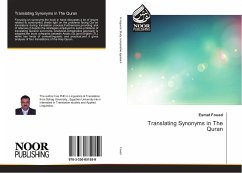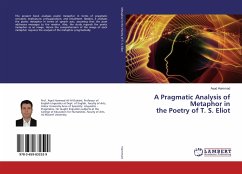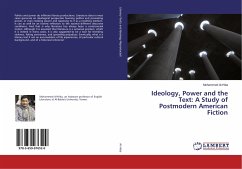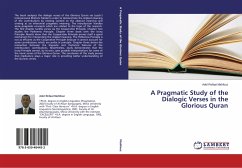
A Pragmatic Study of the Dialogic Verses in the Glorious Quran
Versandkostenfrei!
Versandfertig in 6-10 Tagen
58,99 €
inkl. MwSt.

PAYBACK Punkte
29 °P sammeln!
The book analyzes the dialogic verses of the Glorious Quran via Leech's Interpersonal Rhetoric Model in order to demonstrate the implied meaning of the contributions by relating context to the abstract meaning and arriving at an inferential pragmatic meaning. The introduction handles some pragmatic concepts which are related to the topic of the research. The first chapter tackles verses via the Cooperative Principle. Chapter two studies the Politeness Principle. Chapter three deals with the Irony Principle. Results show that the Cooperative Principle proves itself a good mechanism for interpre...
The book analyzes the dialogic verses of the Glorious Quran via Leech's Interpersonal Rhetoric Model in order to demonstrate the implied meaning of the contributions by relating context to the abstract meaning and arriving at an inferential pragmatic meaning. The introduction handles some pragmatic concepts which are related to the topic of the research. The first chapter tackles verses via the Cooperative Principle. Chapter two studies the Politeness Principle. Chapter three deals with the Irony Principle. Results show that the Cooperative Principle proves itself a good mechanism for interpreting the implied meaning. The Politeness Principle is not as efficient as the Cooperative Principle because it cannot account for some contributions which are polite in principle. Chapter three shows the interaction between the linguistic and rhetorical features of the interlocutors' contributions. Nevertheless, study demonstrates that the Irony Principle cannot, by its own, give possible interpretations for some of the ironic verses of the Glorious Quran. The conclusion of the study proves that implicature plays a major role in providing better understanding of the Quranic verses.



